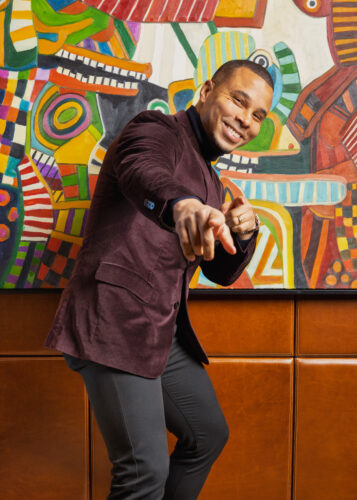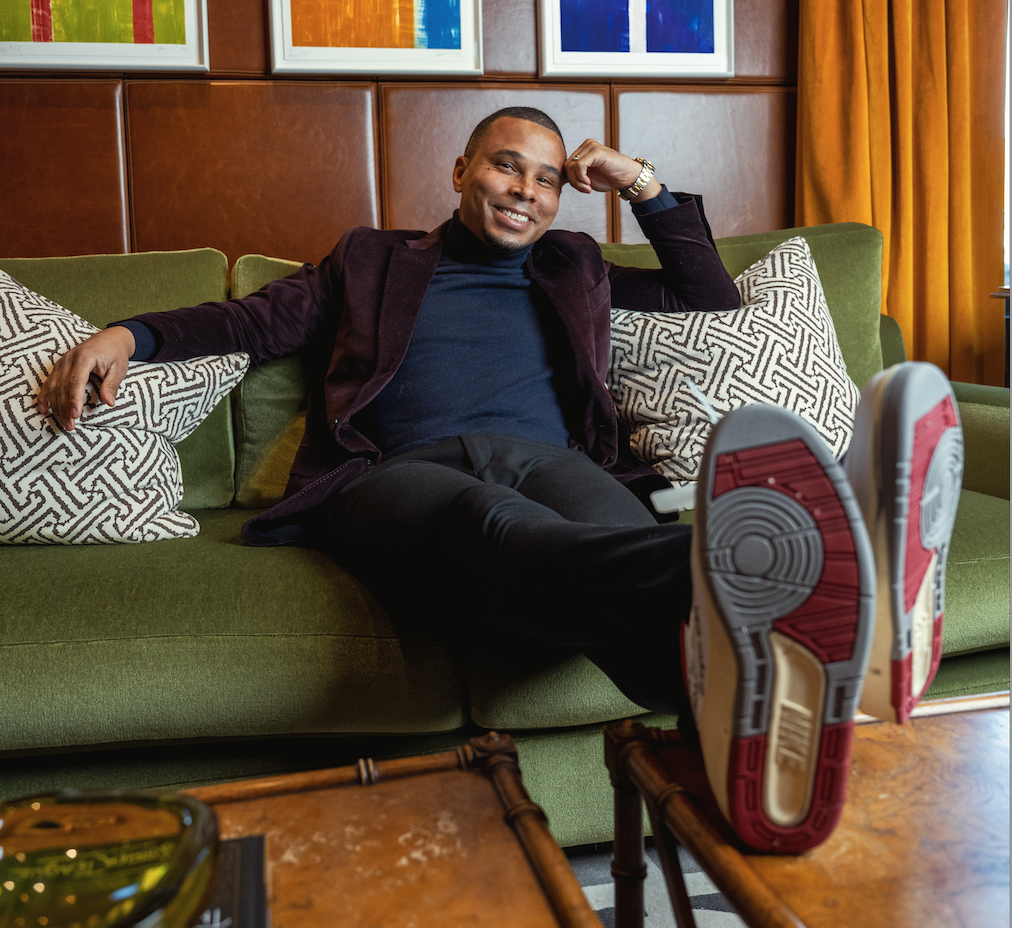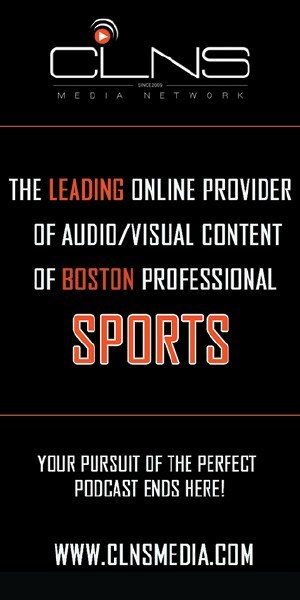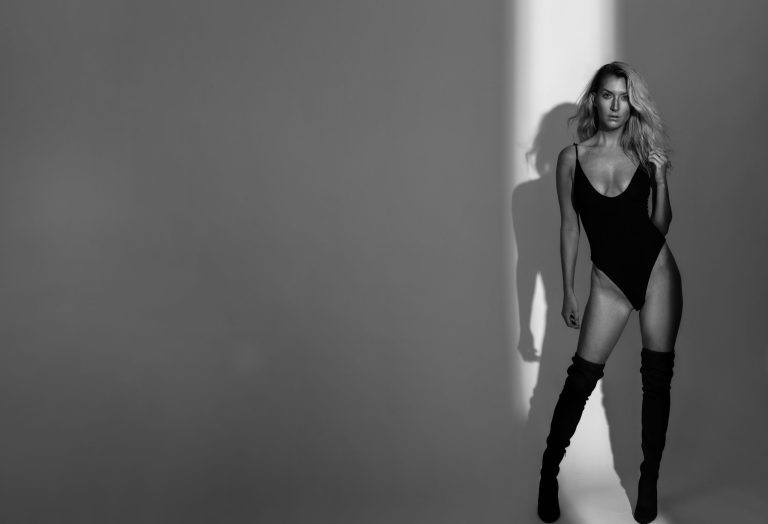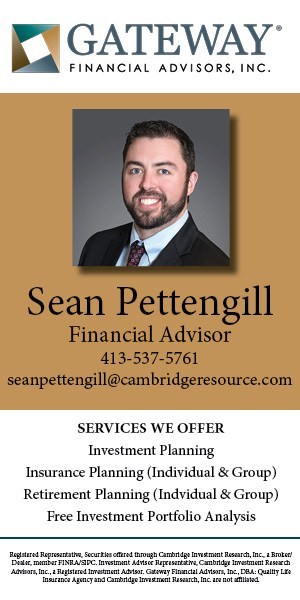Glory. Triumph. Adversity. Setback. Overcoming obstacles. Charlie Davies has faced and experienced it all. Now, as head of philanthropy with the ‘Quin Impact Fund, he is sharing his leadership and life lessons to have their biggest impact yet on the communities of Boston.

When people think of Boston social clubs, it’s not uncommon to think of exclusivity. Some kind of barrier to entry. You have to be wealthy, or descended from a Brahmin, or know someone who is.
As much as every club aims for “diversity” and “inclusivity” these days, you still get the feeling that at the end of the day, “it’s a big club – and you ain’t in it.”
Recently, that all changed.
In an elegant, stylish building, located on Commonwealth Ave in a zip code as prestigious as any, The ‘Quin House has become the by nomination social club Bostonians are dying to get an invite to, with a key entry point being you must be making some sort of positive impact on society.
The ‘Quin House is not just a beautiful place to connect with people – although it is certainly that. Their mission is also “to be a force for good in the city.” And for that, its fundraising arm, The ‘Quin Impact Fund, found one of the most unstoppable forces of positivity to come out of the New England area; and recruited him to be its Director, CharlieDavies.
“We’re trying to be different than your typical social club in Boston,” he said.
When soccer fans hear his name, philanthropy may not always be the first thing that comes to mind. After all, he is one of the most accomplished soccer players hailing from New England and, after his decorated career, has stayed close to the sport as an analyst for the New England Revolution, Major League Soccer and for World Cup Qualifying with CBS.
But those who know Charlie know how perfectly suited for the role he is: giving back has always been a part of who he is, and there’s much more to him than what one initially sees at a surface level.
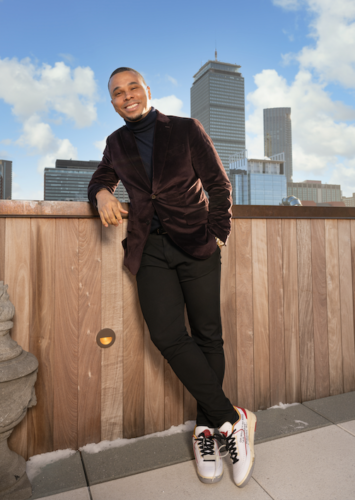
Charlie Davies 1.0
Growing up in Manchester, New Hampshire, and dominating on the pitch on the region’s top travel teams, guided by his father, Kofi, from the outside looking in everything looked great. An accomplished soccer player in his own right from Gambia, Kofi originally came to the U.S. to pursue a professional career.
“Then he met my mom, and that was all she wrote,” said Charlie with a laugh. They are still together. Kofi never pushed his son into soccer – actually, Charlie had thought he was signing up for Pop Warner football when he started playing at age six. Undeterred when he discovered what kind of fứtbol he’d actually signed up for, Charlie fell in love with it. Only when it was clear he had a real passion for the game did his dad step in.
“He asked me, ‘Do you want to be good?’” said Charlie. And he did.
“Once I did get into it, he was pushing me to the brink every single day,” Charlie reflected. “I think he was trying to live through me, in a way, looking back on it.”
So they would train together from the time school let out until nightfall, Kofi showing Charlie the subtleties of the game… when he was around. Charlie did want to be good. And he loved playing soccer more than anything in the world. But there was something else.
“I wanted to get out of the situation that I had in my home,” he said. As he got a little older, Charlie realized his father was addicted to drugs. Though there were times he would disappear for a couple nights, Charlie could always depend on him to return for his games. It was his mom’s absence that was more profound; her husband’s addiction drove her to nervous breakdowns and episodes that required institutionalization throughout Charlie’s childhood.
There were times the family was on food stamps, and Charlie had to be the one to go shopping for the family. Like Kevin McAllister in Home Alone, but paying with food stamps and the cashier calling for help to process them over the loudspeaker. The embarrassment stings to this day.
“I didn’t have any role models, I didn’t have anyone I could talk to,” said Charlie. “The only time I got joy, really, out my life, was going outside and playing sports. And I figured that was going to be my ticket to success to get out of this lifestyle.”
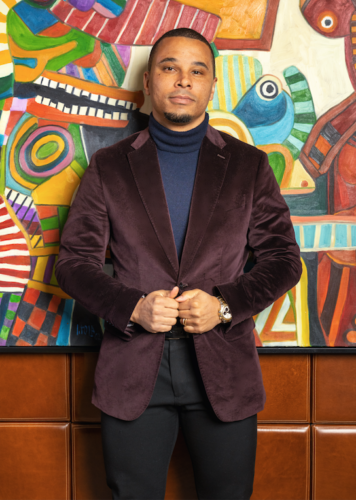
He was right. Not that he didn’t have his doubters. A seventh-grade teacher who had told him he’d “never make it,” stuck with him long after he had made it to the highest levels of competition in the world. But knowing he had ability, and driven by his family’s struggles, Charlie moved up the ranks of youth soccer and established himself as one of the best players under 16 on the Eastern seaboard.
After a tournament in Austria against their national team, where Charlie scored a highlight-reel goal that made their sports news and had a strong showing throughout, Manchester United called the Davies’ home. They wanted to know if he had citizenship in any European countries.
“That is when I knew I was going to be a professional at some point, that I was on the right path,” said Charlie. And that’s around the time he began to transcend the hardships that had defined and driven him. His play caught the attention of the Brooks School, an elite prep school in North Andover. Soccer had gotten him his foot in the door, but Charlie was determined to succeed academically too so he could take full advantage of the opportunity “that changed my life.”
At Brooks, he had the structure academically he’d never had, and he flourished in the classroom. He picked up wrestling and added some of those elements to his game. But it was his mental toughness that set him apart; among student-athletes who came from backgrounds where their families had multiple vacation homes, Charlie was still scrapping just to even be there. His game continued to progress at Brooks, and meeting people from all different walks of life and countries across the world helped him become more well-rounded.
“I’d do anything for them,” Charlie said of The Brooks School. “They changed the course of my life.”
Having coaches, teachers and dorm parents who he could look up to and who mentored him helped prepare Charlie for success not just as a soccer player, but as a young adult. It was in this environment where Charlie began volunteering – now that he was beginning to emerge from a background where survival was his main focus, he had something to give back and was eager to do so.
“We’d go to the Lawrence Boys & Girls Club, and meet these kids who didn’t have anyone to talk to.” Charlie saw himself in them. “I’m just this high school kid and they look up to me, and can’t wait to hang out. And this was before I was anything. We really have this power to uplift and inspire and get kids to stop thinking about some of the difficult things they’re dealing with in their day-to-day lives.”
Charlie’s success on and off the field, and his lifestyle of giving back to others, continued at Boston College. It was also where he met his wife, Nina. He’d seen her at freshman orientation and she’d stood out; he was worried he’d never find her again, but he did, weeks later, in his Christian theology class.
BC was a nationally-ranked team and Charlie was the Big East Rookie of the Year as a freshman. He was poised for a big year to follow it up, having won the MVP award at an international tournament that summer. Playing with some of the best players in the world his age, most of whom had already turned pro, Charlie felt like he belonged – and in some cases, was playing even better than some of them. Taking that step to turn pro himself was just within his grasp, and he intended to do it after his sophomore year.
As what would become a constant theme in his life, the universe had other plans for Charlie: the first game of his sophomore season, he tore his meniscus.
“I went through depression, real depression,” he said, recalling how concerned he was that he’d never be the same player after his injury. Thanks to the BC strength and training program, that didn’t happen. “They really cared.” Any doubts he’d had about his post-injury ability were answered during a game that following spring between BC and the Revolution – Charlie scored 2 goals and had an assist as BC beat a Revs team that had Clint Dempsey, Taylor Twellman, Michael Parkhurst and more, 3-1. After his junior season, where he was the ACC Player of the Year, Charlie fulfilled his lifelong dream of becoming a professional soccer player.
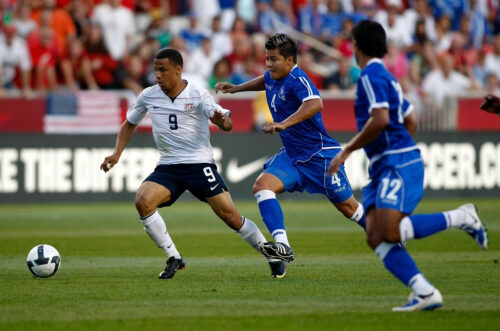
More success followed as he played internationally, for Hammerby in Stockholm and then the U.S. men’s national team in the 2008 Olympics in Beijing. Though the competition was the “ultimate competitive experience – you can’t top that,” being a part of that team brought Charlie a true full-circle moment when they were featured -as the Breakfast of Champions- on a Wheaties box.
“Sometimes I had to eat Wheaties for breakfast, lunch and dinner. I’d stare at that box and dream one day I could be part of it, and here I am.”
He continued to ascend on the club level, signing to play with Sochaux in the premier French league, Ligue 1, in July of 2009. He was also becoming a mainstay on the National team, playing in the 2009 Confederations Cup and in the FIFA World Cup qualifying tournament, where the U.S. defeated the Spain team that would go on to win the 2010 World Cup and hadn’t lost in two years before that game.
Charlie scored against Mexico in Azteca Stadium during that tournament, becoming only the fourth American to ever do so. The team continued to roll in the qualifying rounds, beating Honduras at their home stadium as well, in an environment notoriously hostile to opponents. That was the game that officially qualified the team to be a part of the 2010 World Cup.
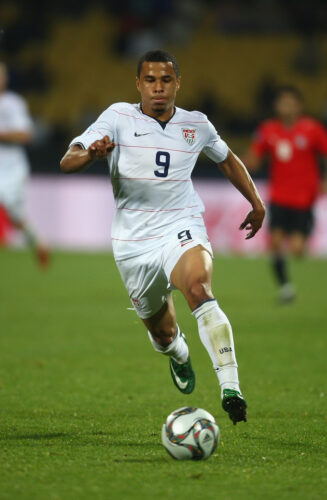
“It was the scene you’d expect after winning the Stanley Cup. We were doing belly slides in the locker room, champagne everywhere, guys were going crazy. It was that moment you dream of as a professional athlete.” Charlie said.
He was poised to be a part of the 2010 U.S. World Cup team. As the team flew into Washington, D.C. right after that game for more tournament play, knowing they were in but playing for higher seeding, it was all beginning to come together for him as one of the best U.S.-born players in the world. He wasn’t expecting to play in that game after developing a groin strain in one of the qualifiers, but not even that could bring him down from being on top of the world.
That’s when it all came to a screeching halt. Knowing he wouldn’t be playing in the upcoming tournament game and wanting to enjoy a night out, Charlie spent the night of Monday, October 12, 2009 in Georgetown with friends, watching Monday Night Football and listening to live music. At around 2:30 the next morning, he got a ride back to where he was staying with some people who were also leaving at the same time.
“I beat myself up over this moment for years. I remember doing my due diligence to see if she’d be able to drive,” Charlie said about the driver of the car. He hadn’t been drinking himself. He put on his seatbelt, and the next thing he remembers is waking up at the hospital. He still doesn’t remember the car accident that forever altered the course of his life.
“It’s a damn good thing that I don’t,” he said. “I’ve tried.” The driver of the SUV he was riding in lost control of the car on the George Washington Parkway and struck a metal railing. The crash tore the car completely in half, and killed one of the passengers. The crash fractured Charlie’s right tibia and femur, his elbow, multiple bones in his face, lacerated his bladder and had bleeding in his brain.
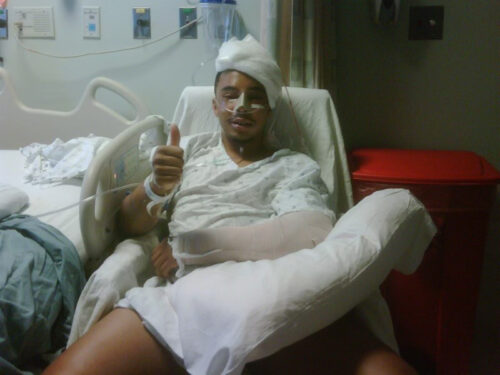
“When I woke up, I didn’t even remember being in D.C.” He learned about what happened to him after frantically trying to remove some of the 36 staples in his stomach. His family and now-wife quickly joined him at the hospital.
Charlie kept talking about returning to soccer; they realized he had no idea the severity of his injuries. It wasn’t until a detective came to see him two weeks later that he learned about the passenger that had been killed.
“I could not fathom that I was, at this stage of my life, in this position. Being on bed rest, I couldn’t get up to go to the bathroom,” he said. Rather than feeling sorry for himself though, Charlie was just relieved to have a second chance at life.
“Have you seen the car?” a priest who came to visit him had asked. “You’re here for a reason.”
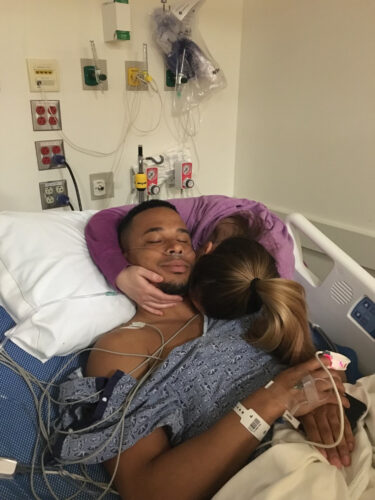
Still, there was a part of Charlie that believed that that reason was soccer. As he inquired with doctors about the recovery time for his injuries, it was clear that many of them didn’t think he would ever play professional soccer ever again. He spent a month in the hospital, re-learning how to walk and put on clothes, and regaining use of his left hand. He describes the time he spent in rehab having to use a wheelchair as “very humbling.”
“I learned that soccer wasn’t everything. It makes you realize what’s important in life, and the people that are most important to you, because you also see the people who stand by you and are there for your support, and the ones who are only in your life because you’re successful. That was also a tough pill to swallow, but it was great for me to go through that experience because I’m still alive and I knew I was going to be better for it,” Charlie said.
“I was going to make sure that this 2.0 version of Charlie Davies is gonna take advantage of getting a second chance.” He was on a mission to make up for what had happened to him, to his family, friends, supporters, and his country, and felt the only way to do that was to rehab relentlessly through all the pain, and get back on the field and score goals again. The next stop was Delaware with the USMNT trainer, where Charlie worked for four months with a single-minded focus on this mission. At first, even standing up without getting dizzy was enough to sap him of all his energy.
“I was exhausted. I was so drained. But I kept pushing and pushing myself.” Slowly but surely, he graduated to running again. After his time in Delaware, he continued his rehab in France with the goal of suiting up for Sochaux again.
“I trained, but I was just a shell of myself,” Charlie said. That was when Bob Bradley, the USMNT coach at the time, called to deliver the news that he wasn’t going to be taking him to the training camp for the World Cup.
“That was one of the most difficult phone calls I’ve ever had in my life, knowing I was never going to get that opportunity again.” Bradley also told Charlie that no one had ever given up on him, and he was proud of him. Those words continued to inspire him in his rehab. He made the Sochaux game day roster around Christmas time of 2010, and he knew he at least had made it back that far.
Charlie returned to D.C., where his life had changed, to restart his career. This time, his family and friends could come see him play more regularly. He scored 2 goals in his first game back.
“It was a movie. It still doesn’t feel real. I still get goosebumps every single time I think about that moment. Everything I put into getting back on the field and all the emotions surrounding not knowing if I’d get to play professional soccer again to be able to still score goals.” Charlie spent that season visiting the doctors and nurses who had saved his life; many of them came to his games.
“I got to talk to the helicopter pilot who flew me from the crash. Just remarkable.”
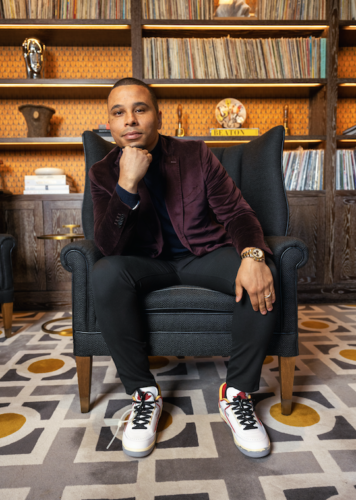
Charlie Davies 2.0
The 2.0 Charlie was also determined to marry Nina, who had been with him every step of the way on his soccer journey and never left his side after his accident. He’d always known she was The One, but with her support of him through every part of the grueling post-accident recovery, he knew “there was no one in this world more meant for me than her.”
Still, as sure as he was, Charlie wanted to make sure the proposal was removed from the shadow of his recovery. He proposed in Barcelona in August of 2010, and the couple was married in 2012 at the BC campus church.
After a year stint in Denmark, Charlie came back to the U.S. for good, signing with the hometown New England Revolution in 2013. Being back to his roots, he felt a strong desire to connect with the community.
“I had to get back to being in touch with everything that’s going on in New England. I’d had incredible experiences, the lows and the highs, and felt like my path and my journey could really benefit and help other kids in this area, because I was once in their shoes. A poor kid from Manchester, New Hampshire, a biracial kid, having to survive. Giving these kids an outlet, a dream and hope, and possibly change the outlook on their life.” This was his mission as well as competing for an MLS cup; he thrived in both.
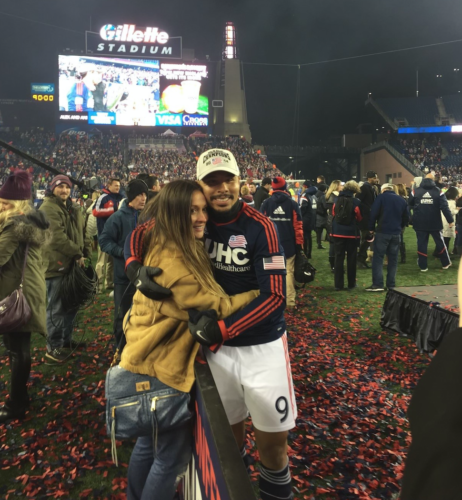
The Revs reached the Final in 2014, with Charlie scoring big goals throughout the tournament. The following season, he was named the Midnight Riders Man of the Year after scoring 10 goals. It was that same year that Charlie and Nina found out they were having twins. True to the trajectory of his whole life though, just around the corner from the highs was more adversity.
On St. Patrick’s Day of 2016, their twin boys were born 3 months premature. They spent 92 days in the NICU after their birth. About one month into their stay, Charlie got an MRI for a pulled groin, which he attributes to not eating right or sleeping well during all those nights at the hospital. The doctors found a mass in his leg. It ended up being liposarcoma cancer. He was in one wing at Brigham & Women’s Hospital, the newborn twins in another.
“I was able to lean on my car accident experience,” Charlie said. “You gotta just stay positive. I had already been rocked so hard, that experience, as tough as it was, it was caught early. I think everything happens for a reason. The boys kind of saved my life coming out early.” After 3 months of treatment, Charlie returned to soccer for another year and a half, retiring in 2018.
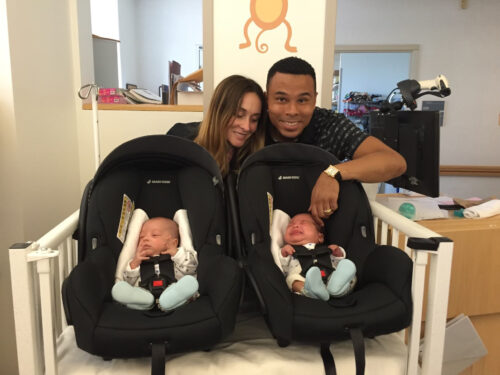
Charlie Davies 3.0
Charlie Davies 3.0 splits his time between his family, his work in the media realm as an analyst, and philanthropy. He serves on one of the Boston Children’s Hospital boards.
“I love, love, love kids, and I love, love love what Boston Children’s does for children in saving lives and healing. It was a no-brainer for me.”
Serving on that board is how Charlie met Sandy and Paul Edgerley, the power couple behind The ‘Quin House. Watching him work with passion and heart towards the Boston Children’s mission, they knew he’d be perfect for The ‘Quin Impact Fund.
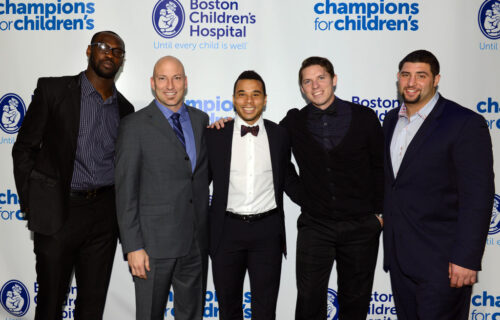
The ‘Quin Impact Fund, since its inception in the Spring of 2019, has graciously gifted close to $1M to what it identifies as “areas of impact” in the local communities. It has, in many ways, just begun to scratch its surface.
Though philanthropy has always been close to Charlie’s heart, running a nonprofit is new to him.
He credits his co-chairs, former Boston Boys & Girls Club CEO Linda Whitlock and City Year Chief of Staff Kanna Kunchala with helping him learn as this startup foundation grows.
Their goal is to raise $1M a year to serve the five areas of impact that the Fund is focused on: Art & Culture, Health & Wellness, Innovation & Discovery, Youth & Education, and Equity, Inclusion & Opportunity. The Fund will typically give a gift of $25,000-$50,000 to local organizations directly focused on each of these pillars. Each season of the year has social and cultural events that fit with one of these areas of focus and gives the ‘Quin Impact Fund a chance to serve its community and make a difference.
Beyond the money, the gift the Fund gives is access to its members. “Our members get to go out and connect, and I don’t say ‘volunteer,’ like ‘oh, let me just pack up some food for you and that’s my good deed for the day,’ it’s that I have this expertise and knowledge in a certain occupation and I’m willing to give that to the organization. I think that’s something that’s very unique,” said Charlie. “Being a massive connector is something I take pride in.”
Joining the club isn’t just about your net worth or connections – it’s about having something to contribute that makes a positive impact in the community.
“It’s the best job in the world,” he said. “I love the fact that I can help so many different people. Kids, veterans, the elderly, those experiencing homelessness, people who are battling starvation and food insecurity. I have the power to not only help these people but hear these people, listen to them and connect them to other people who can help them in different ways. It’s a magical job. I look at it as a way to make Boston better.”
And for Charlie Davies, that is more than enough reason to never give up.
